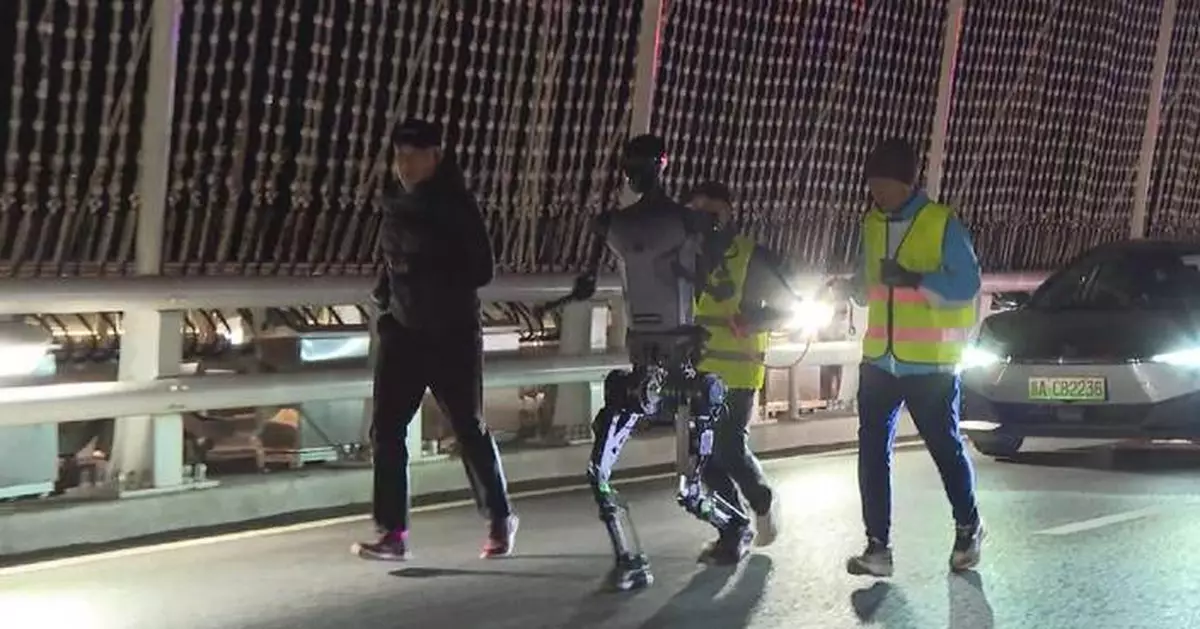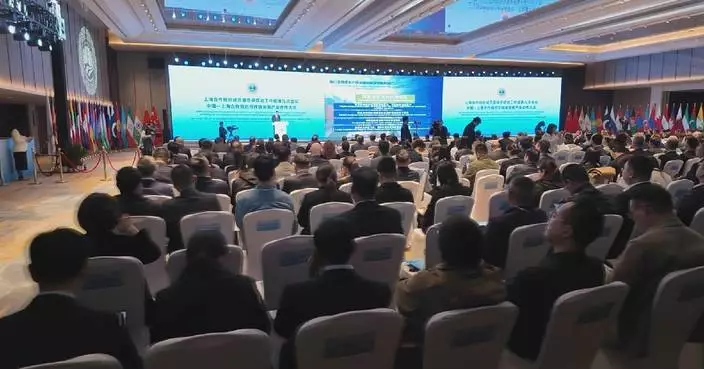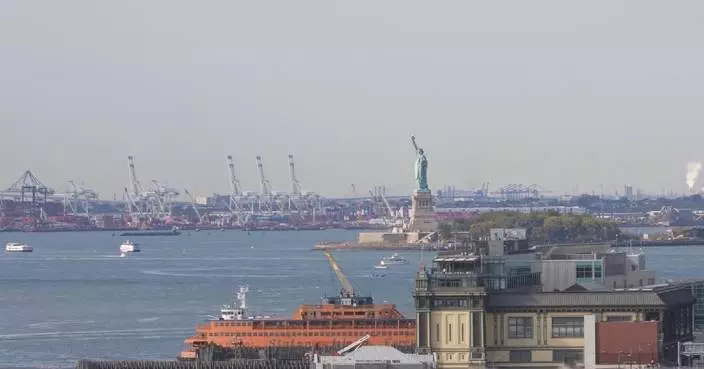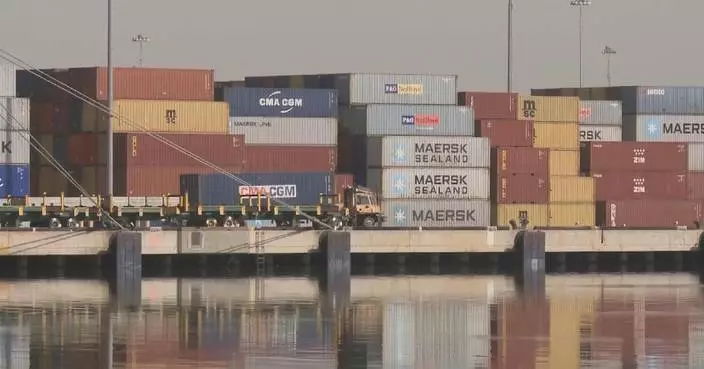Some of the humanoid robots that will take part in a half-marathon race in Beijing scheduled for later this month have completed their first road test.
The race, set for April 13 in the Beijing Economic-Technological Development Area in the capital city's southeast, will feature both robotic and human athletes competing on the same route but on separate tracks to ensure safety for all participants.
The competition is open to global robot companies, research institutes, robot clubs and universities. So far, 23 organizations have signed up for the competition, and six robot teams have participated in the road test held at midnight on March 28-29.
After all-round inspections and adjustments, a 1.8-meter-tall robot named Tiangong Ultra from the Beijing Innovation Center of Humanoid Robots set off first. The robot finished the race by around two hours and 52 minutes.
The robot departed afterwards is a 1.2-meter-tall humanoid from the Noetix Robotics, a company founded in Beijing in 2023. The main features of the robot are the advanced joint design and drive system, which has highly flexible movement capabilities and can achieve rapid movements, make turnings and complete complex movements, according to its developers at the site.
To complete the 21-kilometer half marathon, each robot has to undergo several battery replacement operations along the way, which took about five minutes each time. Each team showed different technical features and tested different contents. A team from Shanghai mainly focused on the adaptability of the robot's sole to the road surface. "We must work to improve its uphill and downhill capabilities, its endurance, its operating stability, and some algorithm strategies to a higher level," said Bi Bei, head of the structural development of the Shanghai-based Cyan Robotics.
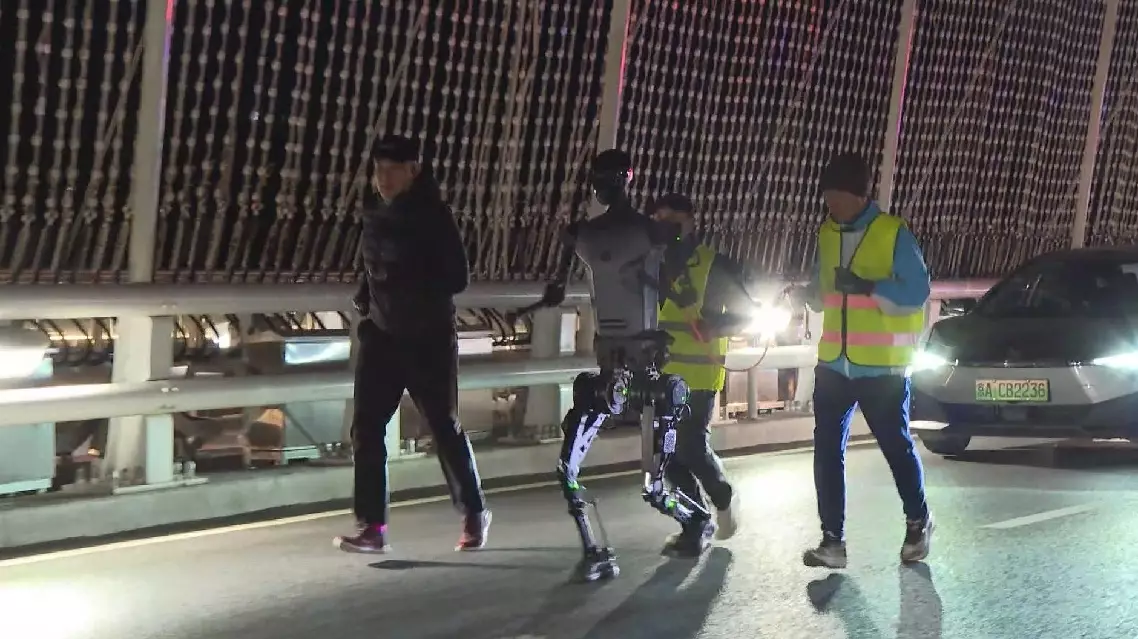
Humanoid robots complete first road test for half-marathon in Beijing
As the uncertainty surrounding the Trump administration's tariff policies fuels inflationary fears in the United States, a number of consumers have resorted to panic buying amid growing concerns that costs could shoot up.
With price hikes expected on goods such as automobiles, beauty products, and even on everyday food items, many residents say they have been rushing out to stock up before prices climb even further.
In recent street interviews with the China Global Television Network (CGTN), New York residents shared how the impact of the ongoing tariff war is affecting their daily lives.
"Actually, I already have. I've already started stocking up. My mother has a whole stockpile, and she's panicking. But I told her we're going to be okay, as we live in New York City," said Amelia Guilford, a retail worker who was visiting her mother in the city.
With many anticipating a rise in inflation, many Americans are concerned about the long-term financial impact, and say they are now being more prudent with their money.
"I think we have to [spend more carefully]. Because otherwise you're going to be in real trouble economically or in debt, because if you spend more than what you get, that's going to be a lot of trouble," said Jose Pena, a janitor.
The tariffs, which directly affect the price of imported goods, have led to predictions of significant price increases, particularly on goods coming from China, which has been the biggest target of the tariffs.
"[Products] from China are going to be more expensive. I cannot exactly name what kind of products one by one, but every one that comes from China is going to be more expensive, without a doubt," said Pena.
Public frustration is evident, with some questioning the logic behind U.S. President Donald Trump's risky and unpredictable pursuit of tariffs on other countries, as the debate over the long-term consequences of the policy intensifies.
"I think he's just making enemies, and I trust him not. And I think he's making a mess of everything. I think it's all going to come around and flip back. The changes he's doing are completely unsustainable," said Lois Adams, a nurse, as she expressed her disapproval of Trump's approach.
Ordinary Americans are facing up to the harsh reality of rising prices and remain anxious about the future economic impact of the continuing trade war.
Jerome Wilkins, a security worker, voiced concerns about the broader societal implications of the tariffs, warning it will again be the poorest people who suffer the most.
"I think that the tariffs are horrible. I think that it's like privatizing America, and instead of America being a country for the people, it's a corporation for the rich. And it's just for them to get richer, while the poor get poorer. And that's basically how I feel," said Wilkins.
Meanwhile, the Chinese government announced it would raise tariffs on all imported U.S. goods from 34 percent to 84 percent, effective Wednesday, in response to the U.S. decision to escalate its "reciprocal tariffs" on Chinese products, further adding to the economic strain.
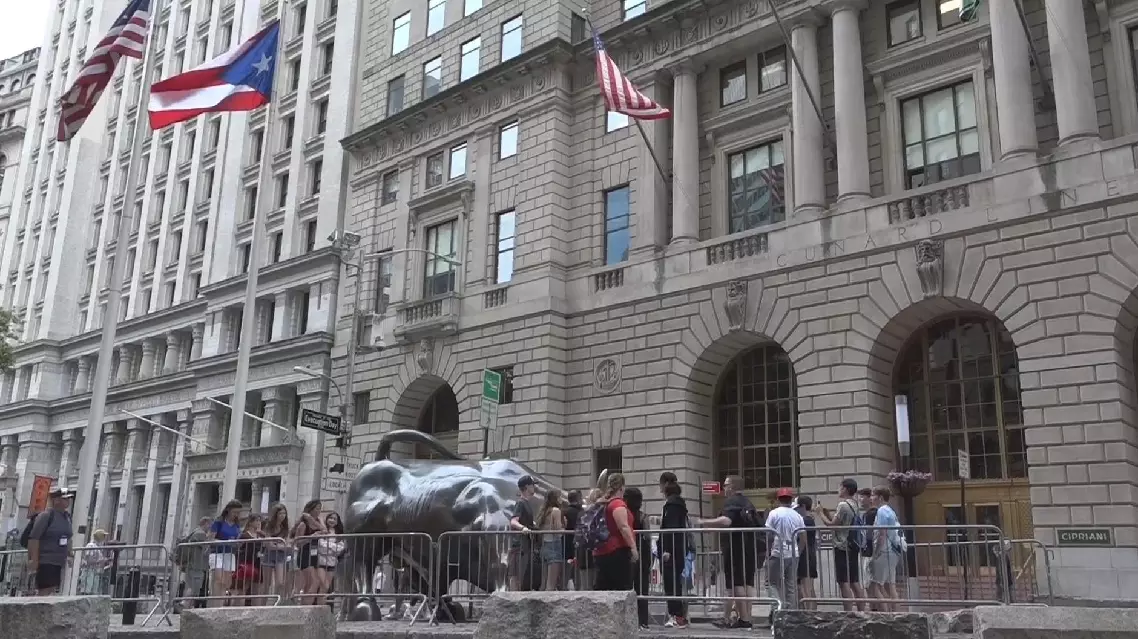
Tariff war triggers panic buying in US, raising public concerns over rising costs



